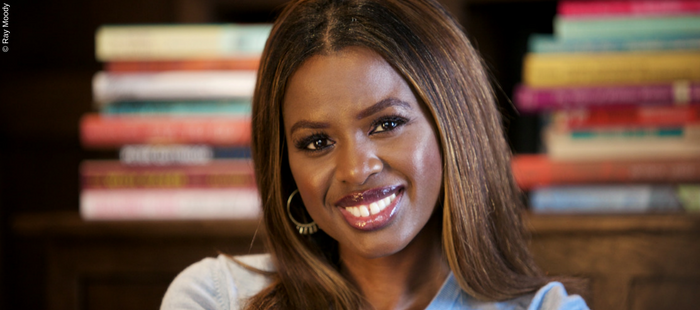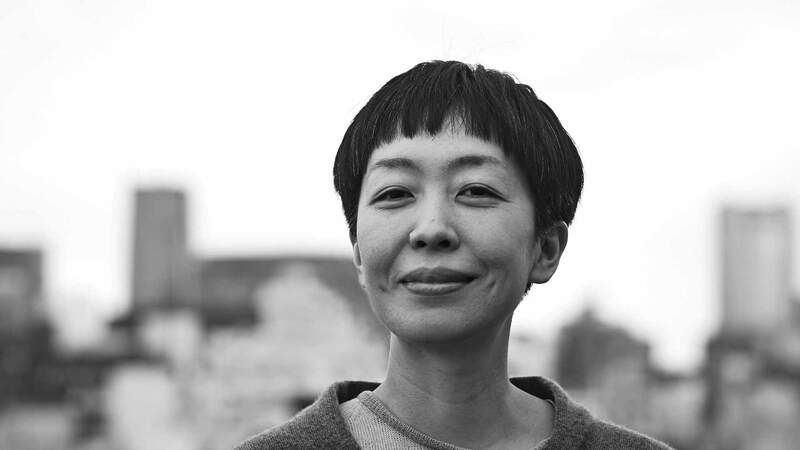You are viewing your 1 free article this month. Login to read more articles.
June Sarpong | 'The idea that I would be unconsciously biased took me aback'
I meet June Sarpong on a bright early-autumn day at the site of Battersea Power Station. Sarpong and a friend are touring a penthouse flat in one of the new blocks, where Sarpong is to host a forthcoming event. I tag along, taking in the views across the city, the penthouse’s private spa and gym, and what feels like numerous bedrooms and terraces.
Next door at a restaurant we settle down to chat. It is all, I think, a bit different from the world Sarpong came from - she grew up in Walthamstow, part of a Ghanaian Christian family living side-by-side with people of all kinds of backgrounds, an upbringing that made her naturally inclusive, comfortable with whoever she might meet. Or so she thought.
At the beginning of Diversify: Six Degrees of Integration (HQ, October), Sarpong recounts an incident when she met a young sound assistant covered in tattoos - some of them looking like gang tattoos - on a set she was working on in Las Vegas. Based on his looks, she made a snap judgement about the kind of person he was, and decided she wouldn’t speak to him. And then she clocked her behaviour.
"I was really stunned at myself because I have always seen myself as open-minded, inclusive, I grew up in a multicultural area, my work is all about different people, and the idea that I would have this unconscious bias and hidden prejudice just completely took me aback," she says. "And I thought, my goodness, if I have this stuff, then how can I be surprised by anyone else because as a society we've all been conditioned to believe this nonsense."
Sarpong ended up speaking to that sound assistant, and discovered that her preconceptions of him were wrong. Now, through Diversify and its accompanying website, Sarpong wants us to all to confront our "isms", and for us to live in a world where there are no "others".
Diversify explores seven others - men, women, class, sex, body, age and view. Other is defined by Sarpong as "any demographic that is excluded socially, politically or economically from the dominant group(s) in society".
She continues in the book: "If you are not a white, non-disabled, educated, heterosexual, middle-aged, middle- or upper-class male adhering to a version of Christianity or atheism that fits within the confines of a secular liberal democracy, then on some level you will have been made to feel like an 'other'."
So in the chapter on other men, Sarpong looks at black men, Muslim men and working class men, in the chapter on sex she looks at people who identify as LGTQI+.
It may surprise readers that there is no one section focused specifically on race. "I always knew I wanted every chapter to be about a different other," says Sarpong. "One of the negotiations with the publishers was that they wanted a specific chapter on race, but I didn’t want to do that because there is a real difference in the experiences of women of colour and men of colour. I wanted to deal with them in the context of gender. It was about spending time exploring that."
Sarpong looks at wealth inequality, political difference, bias against the young and the old, and sexism, something she had to confront herself before beginning writing.
"The insecurities we have as women [was the biggest challenge of writing]," she says. "Often women, we are often our own harshest critics, but also we have a lot of naysayers and detractors. For me because my background is predominently entertainment, and I was seen for many years as a youth TV presenter, there is a kind of snobbery, as in 'what would you know'. So I had to get over that myself, in terms of listening to those sorts of voices, but because I think this issue is so important and it's something that isn't discussed but yet we are all dealing with the ramifications of 'other-izing', means we don’t have the luxury of ignorance anymore.
"And so I thought, forget what anyone says, I'm so passionate about this issue, it's something that I've always cared about throughout my life because I've seen through my own experience what happens when you breach the divide. I have so many friends from different walks of life who you would think we would have nothing in common, but we're human beings and that means there is something in common from just that alone."
So why now? What is it that has made diversity and inclusion such a hot topic across society at this moment in time?
"The current system we live in was designed by our forefathers and they had some pretty warped views on fairness," says Sarpong. "You have got generations of guilt and shame. Part of the reason we have avoided it [before now] is it is too painful to address and we can pretend to paper over it.
"Part of the reason we are changing now is because we have a new generation. We are having to address issues because we have so many big challenges that we need to tackle."
Sarpong comes across as hugely confident, with a booming, infectious laugh that rings out over the sounds of coffee being made, dishes being put down on tables, and chatter between lunch companions that surrounds us. But she suffers from insecurities that have stopped her from doing things or talking to people. In Diversify Sarpong explains that she’s named those insecurities - a form of imposter syndrome, she says - Agyness.
"Agyness gets on my nerves," Sarpong tells me. "Because I come across as outgoing, people don't realise I have a real shy side. I like to spend time alone, but I love people. I have gotten better at not letting Agyness win the day. I will force myself to do things I am uncomfortable with."
Each chapter of the book ends with tips and questions for the reader, including ones to help them combat their Agyeness, while each of the seven sections ends with research ("I am a data junkie and I am obsessed with data and information") that starkly shows the disadvantages "others" experience, and a challenge from Sarpong that will help the reader get over any isms they may have.
And the book ends with a section where Sarpong looks to the future, to an ideal world where people live without prejudice. I don't mean to be cynical, but isn't it all a bit too optimistic, I ask Sarpong?
"It might not happen in my lifetime but I have more faith in a new generation," says Sarpong. "Every time I am around young people I am excited about the future."









